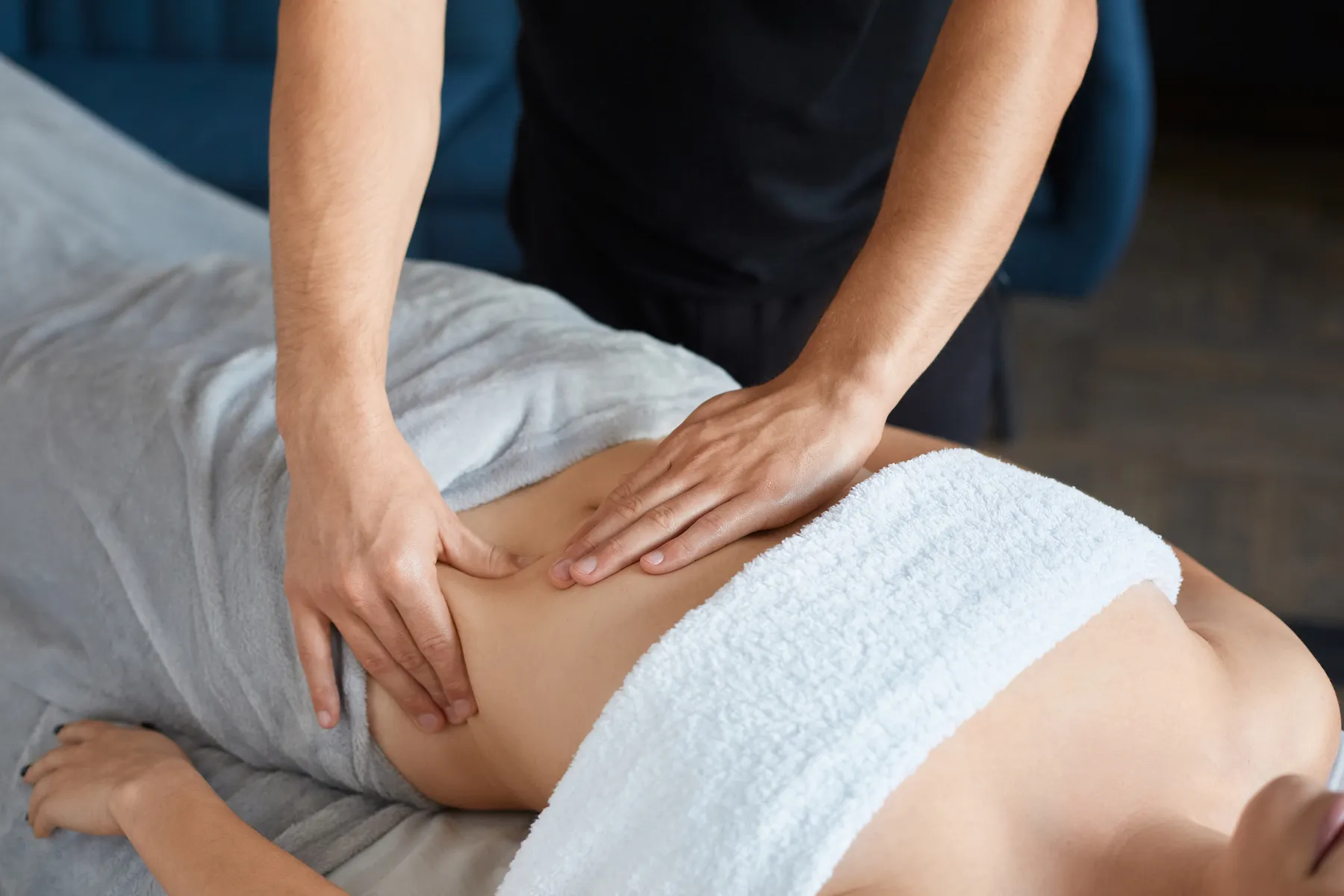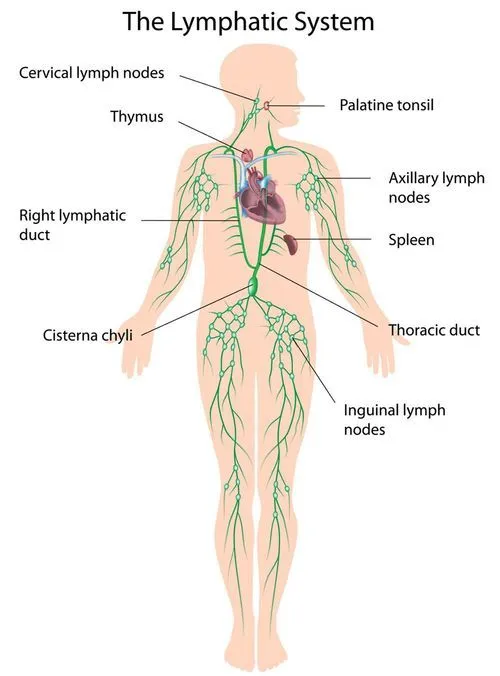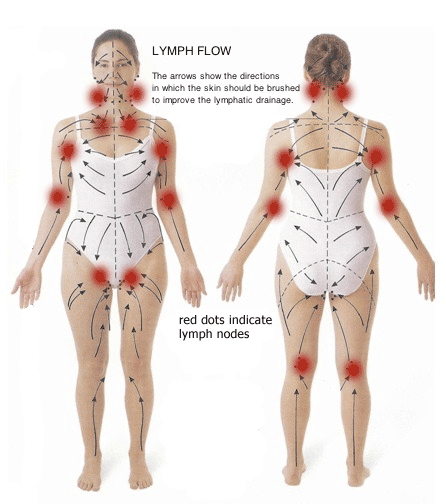
Welcome to a comprehensive exploration of the role of lymphatic drainage in promoting overall health and wellness. The lymphatic system plays a crucial role in maintaining the body's immune function and removing waste and toxins, making it an essential component of our well-being. In this blog, we will delve into the anatomy and function of the lymphatic system, uncovering the importance of lymphatic drainage in maintaining a healthy and balanced system. We will also explore the numerous benefits of lymphatic drainage, from reducing inflammation and swelling to supporting detoxification and immune system function. Additionally, we will discuss various lymphatic drainage techniques, conditions that can benefit from this practice, and the integration of lymphatic drainage in holistic healthcare. Join us on this enlightening journey as we dive into the fascinating world of lymphatic health and discover how it contributes to our physical and mental well-being.

The lymphatic system is a network of tissues and organs that help rid the body of toxins, waste, and other unwanted materials. It is an essential part of the immune system, as it helps to fight infection and disease. The primary function of the lymphatic system is to transport lymph, a fluid containing infection-fighting white blood cells, throughout the body.
The lymphatic system includes a vast network of vessels that carry lymph from various parts of the body to be filtered or destroyed by white blood cells in the lymph nodes. These vessels are connected to lymph nodes located throughout the body. In addition to its role in fighting infections, the lymphatic system also plays a crucial role in maintaining fluid balance within tissues.
lymphatic drainage is vital for maintaining a healthy functioning lymphatic system. This process involves gentle massage techniques designed to stimulate the flow of lymph fluids around the body. By doing so, it can help remove toxins and waste products more effectively while also reducing swelling and improving overall immune function.
Lymphatic drainage has been shown to effectively reduce inflammation and swelling in the body. By stimulating the lymphatic system, this therapy helps to remove excess fluid and waste from tissues, leading to a decrease in puffiness and discomfort. This can be especially beneficial for individuals dealing with conditions such as lymphedema or post-surgical swelling.
One of the key benefits of lymphatic drainage is its ability to aid in detoxification. Through gentle massage techniques, toxins and waste products are encouraged to move towards the lymph nodes where they can be filtered out of the body. This process not only promotes overall wellness but also supports the immune system by reducing the burden on its function, allowing it to focus on fighting off infections and illnesses.
In addition to reducing swelling and supporting detoxification, regular lymphatic drainage sessions have been found to improve immune system function. The stimulation of lymph flow helps white blood cells travel more efficiently throughout the body, enhancing their ability to identify and combat foreign invaders. As a result, individuals may experience fewer instances of illness or infection and an overall improvement in their well-being.

Manual lymphatic drainage is a gentle, hands-on technique that involves specific movements and pressure to stimulate the flow of lymph fluid in the body. This type of therapy aims to encourage the natural drainage of lymph, which plays a crucial role in immune function and overall health. By using light, rhythmic strokes along the pathways of the lymphatic system, manual lymphatic drainage can help reduce swelling, detoxify the body, and promote a sense of relaxation.
Lymphatic massage is another effective technique for promoting healthy lymph flow. This type of massage focuses on stimulating the movement of lymph through targeted pressure and gentle manipulation. Lymphatic massage can be particularly beneficial for individuals dealing with conditions such as edema or post-surgery swelling. Additionally, wearing compression garments like sleeves or stockings can provide external support for proper lymphatic function by applying gentle pressure to improve circulation and prevent fluid buildup in tissues.
The use of compression garments for lymphatic support is also an important aspect of promoting healthy circulation and reducing fluid retention. These specialised garments are designed to apply graduated pressure to different areas of the body, helping to move excess fluid out of tissues and back into the bloodstream where it can be filtered by the kidneys. By incorporating these techniques into a wellness routine, individuals can effectively support their body's natural ability to maintain optimal functioning within the lymphatic system.
Lymphatic drainage is particularly beneficial for individuals with lymphedema, a condition characterised by the accumulation of fluid and swelling in certain parts of the body. The gentle massage techniques used in lymphatic drainage can help stimulate the flow of lymph fluid, reducing swelling and improving overall comfort for those with this condition.
Additionally, individuals suffering from fibromyalgia may also find relief through lymphatic drainage therapy. Fibromyalgia is a chronic disorder that causes widespread pain and tenderness in the muscles and soft tissues. Lymphatic drainage massage can help alleviate some of these symptoms by promoting better circulation and reducing inflammation in affected areas.
Furthermore, post-surgical recovery often involves swelling and discomfort as the body heals. Lymphatic drainage techniques can aid in reducing post-surgical swelling, promoting faster recovery, and minimising scar tissue formation. By encouraging proper lymph flow, this type of massage therapy can contribute to improved healing outcomes for patients recovering from various surgical procedures.
In the realm of holistic healthcare, there has been a growing recognition of the importance of lymphatic drainage in promoting overall well-being. This has led to collaboration between professionals such as chiropractors and physical therapists who incorporate lymphatic drainage techniques into their treatment plans. By integrating these methods, patients can experience a more comprehensive approach to addressing their health concerns.
Furthermore, many wellness programs have begun to include lymphatic drainage as an essential component. Whether it's through specialised massages or targeted therapies, individuals are being educated on how maintaining optimal lymphatic health can contribute to their overall wellness. As part of this integration, patients are also informed about the benefits of regular lymphatic drainage and how it complements other aspects of their holistic care.
Ultimately, the integration of lymphatic drainage in holistic healthcare signifies a shift towards a more proactive approach to health management. Educating patients about the role that proper lymphatic function plays in supporting their immune system and reducing inflammation is crucial for empowering them to take charge of their well-being. By embracing these practices within a holistic framework, individuals can better understand and appreciate the interconnectedness of various aspects that contribute to their overall health.
The lymphatic system plays a crucial role in maintaining overall health, including mental well-being. Through the removal of toxins and waste products from the body, proper lymphatic drainage can contribute to reducing stress and anxiety. When the lymphatic system is functioning optimally, it helps to regulate inflammation and supports a healthy immune response, which in turn can positively impact mental health.
Lymphatic drainage techniques such as massage or therapy have been found to promote relaxation and decrease feelings of tension or unease. By stimulating lymph flow, these practices help to release built-up fluid retention and reduce swelling in the body, contributing to an overall sense of calmness. Incorporating lymphatic support into holistic mental health care can complement traditional approaches by addressing physical aspects that may be impacting psychological well-being.
Understanding the role of lymphatic drainage in mental health highlights its potential as part of a comprehensive wellness strategy. By promoting detoxification and supporting immune function, proper lymphatic flow can aid in alleviating stress and improving emotional equilibrium. Recognizing the interconnectedness of physical and mental health allows for a more holistic approach to self-care that includes nurturing both aspects for overall well-being.
The current scientific understanding of the lymphatic system has led to an increased focus on research and studies related to lymphatic drainage. Clinical trials have provided evidence-based benefits of lymphatic drainage, including its ability to reduce edema, improve immune function, and promote overall wellness. These studies have contributed to a growing interest in utilising lymphatic drainage techniques as a therapeutic intervention for various health conditions.
Ongoing research in the field of lymphatic health continues to expand our knowledge of the role that lymphatic drainage plays in maintaining optimal health and wellness. Researchers are exploring new methods and technologies for assessing lymphatic function, as well as investigating the potential impact of impaired lymphatic drainage on disease development. The findings from these studies will further enhance our understanding of how lymphatic drainage contributes to overall well-being.
Research and studies on lymphatic drainage have provided valuable insights into its physiological effects and clinical applications. This growing body of evidence supports the integration of lymphatic drainage therapy into holistic approaches for promoting health and wellness. As ongoing research continues to advance our understanding, healthcare professionals need to stay informed about the latest developments in this field.
When selecting a lymphatic drainage practitioner, it is crucial to consider their certifications and training in the field. Look for specialists who have completed recognized courses or programs specifically focused on lymphatic drainage therapy. Additionally, inquire about any additional training or continuing education they have pursued to stay updated on the latest techniques and advancements in lymphatic health.
Another key factor to assess when choosing a qualified lymphatic drainage practitioner is their experience and expertise in the field. Seek practitioners who have worked with a diverse range of clients and have successfully addressed various lymphatic-related issues. It may also be beneficial to ask about their specific areas of specialisation within lymphatic drainage, such as post-surgical recovery or detoxification.
Finally, take the time to read patient testimonials and reviews regarding the practitioner's services. This can provide valuable insights into the quality of care and results that previous clients have experienced. Pay attention to feedback related to professionalism, effectiveness of treatments, and overall satisfaction with the practitioner's approach to lymphatic drainage therapy.
Incorporating lymphatic drainage techniques into your self-care routine can have a significant impact on your overall health and wellness. Self-massage techniques, such as gentle circular motions or light tapping, can help stimulate the flow of lymph fluid and support the body's natural detoxification process. By incorporating these simple practices into your daily routine, you can promote healthy lymphatic function and reduce the risk of swelling or inflammation.
Essential oils are another valuable tool for supporting lymphatic health. Certain essential oils, such as lemon, grapefruit, or cypress oil, have been shown to have a positive effect on lymphatic circulation. Adding a few drops of these oils to a carrier oil and using them during self-massage can enhance the benefits of lymphatic drainage therapy. Additionally, lifestyle habits like staying hydrated, engaging in regular exercise, and maintaining a balanced diet all play crucial roles in promoting optimal lymphatic function.
By incorporating these various elements into your self-care practices, you can actively support your body's natural detoxification processes and promote overall health and wellness. Whether it's through regular self-massage with essential oils or making conscious choices about diet and exercise, taking an active role in supporting your lymphatic system is an investment in long-term well-being.
At Prime Chiro, we understand the importance of finding the best chiropractor near you in Lansvale NSW and nearby areas of Fairfield, Liverpool, and Cabramatta. Our team of experienced professionals is dedicated to providing high-quality chiropractic care and consultation services to individuals seeking relief from pain and discomfort. Whether you are dealing with back pain, neck pain, headaches, or other musculoskeletal issues, we are here to help. Contact Prime Chiro today to schedule a consultation and take the first step towards a healthier, pain-free life.
Lymphatic drainage is a therapeutic massage technique that helps to stimulate the flow of lymph fluid in the body, promoting detoxification and boosting the immune system.
Lymphatic drainage has numerous benefits, including reducing swelling and inflammation, improving circulation, enhancing the immune system, and promoting overall health and wellness.
Lymphatic drainage helps to remove toxins and waste products from the body by increasing the flow of lymph fluid, which carries these substances away from the tissues and towards the lymph nodes for elimination.
Yes, lymphatic drainage can be effective in reducing the appearance of cellulite by improving lymphatic circulation, reducing fluid retention, and promoting the breakdown of fat cells.
Lymphatic drainage is generally safe for most people, but it is important to consult with a healthcare professional before undergoing this therapy, especially if you have any underlying medical conditions or are pregnant.
The lymphatic system plays a crucial role in maintaining overall health and wellness. Lymphatic drainage techniques, such as manual lymphatic drainage and lymphatic massage, help reduce inflammation, support detoxification, and improve immune function. Conditions like lymphedema and fibromyalgia can benefit from lymphatic drainage, and it can be integrated into holistic healthcare and mental health practices. Research supports the benefits of lymphatic drainage, and it's important to choose a qualified practitioner. Additionally, incorporating self-care practices and lifestyle habits that promote healthy lymphatic function is essential for overall well-being.